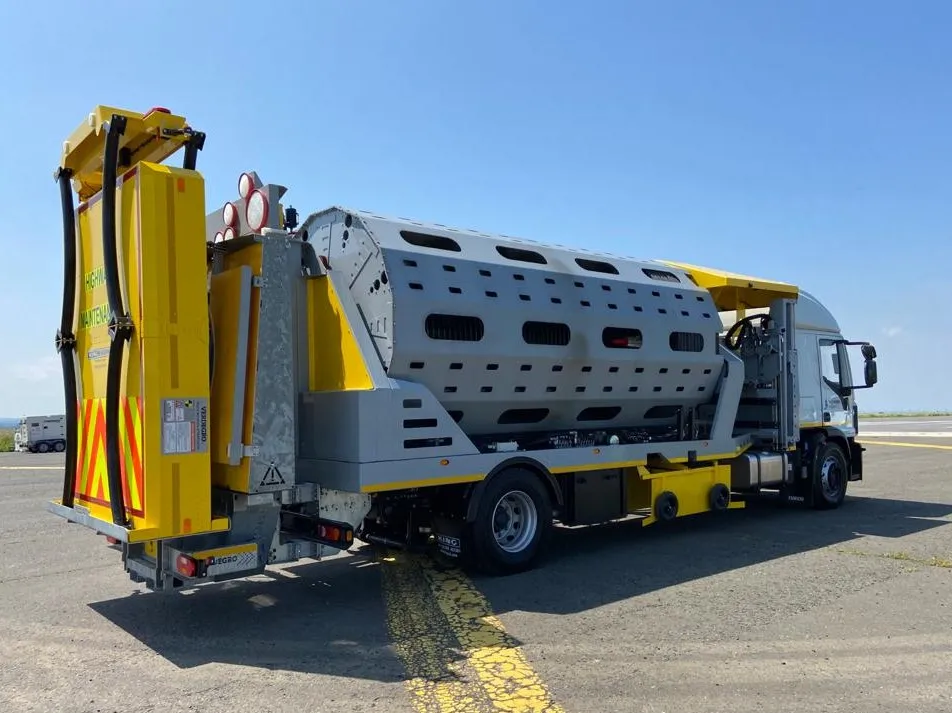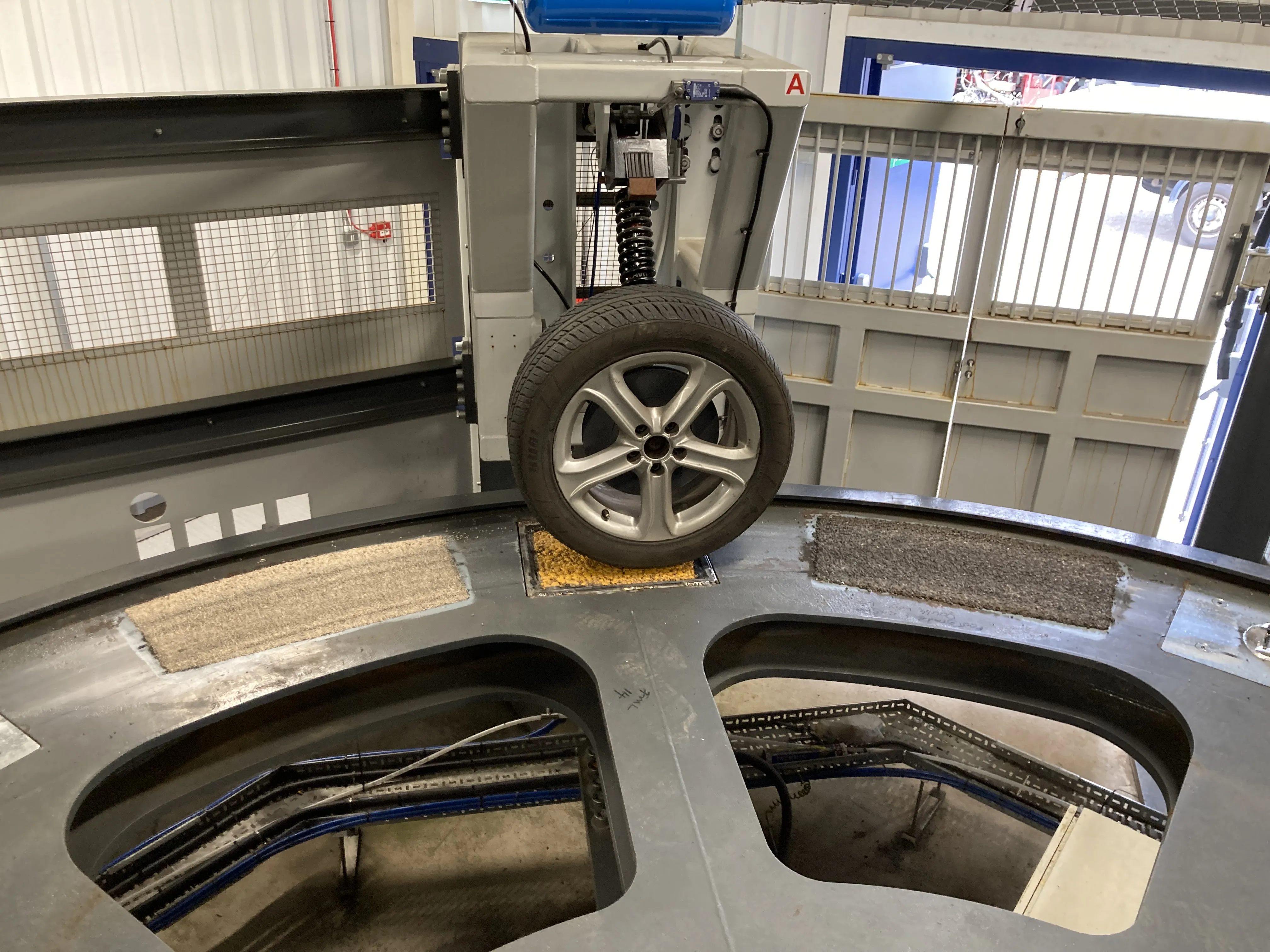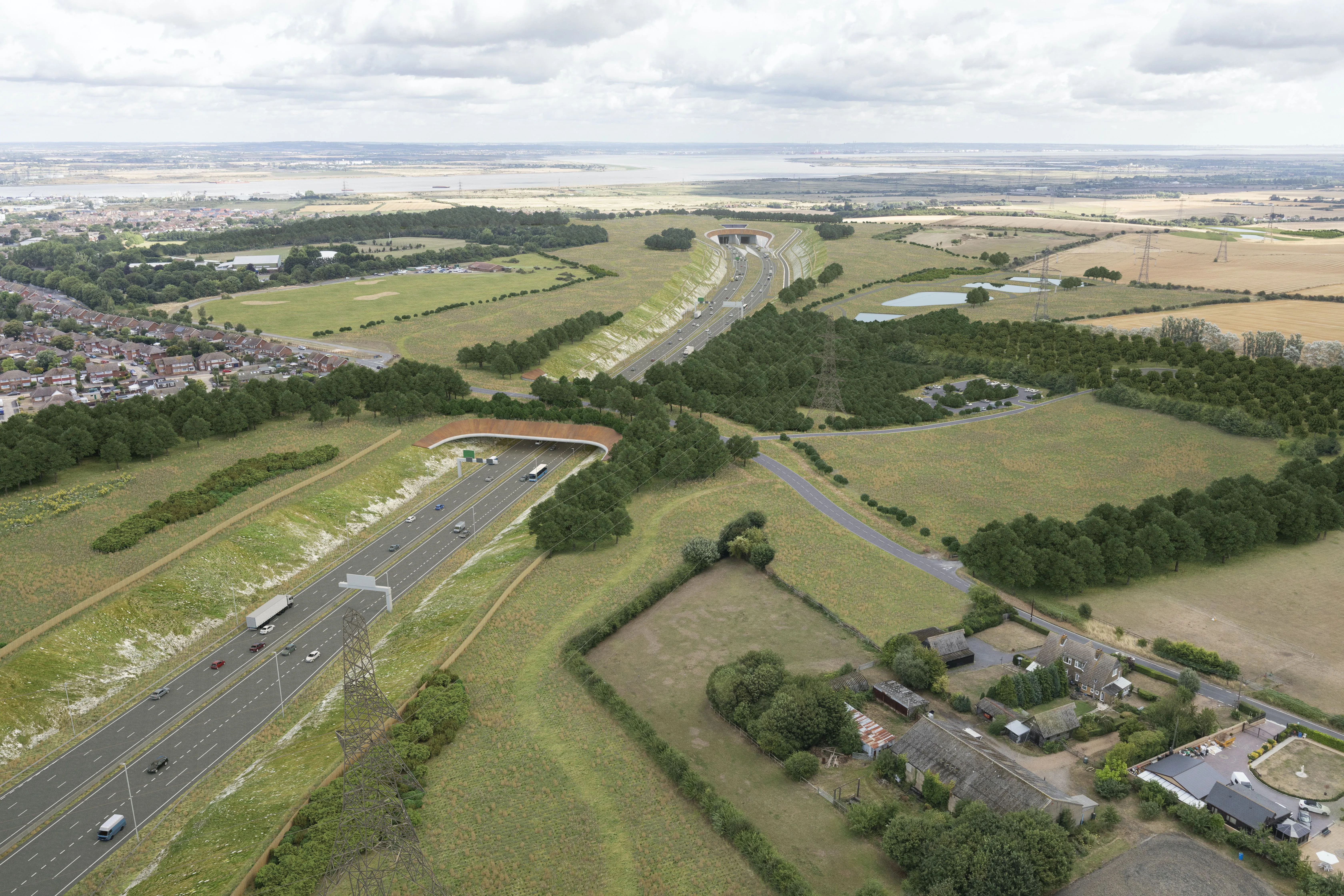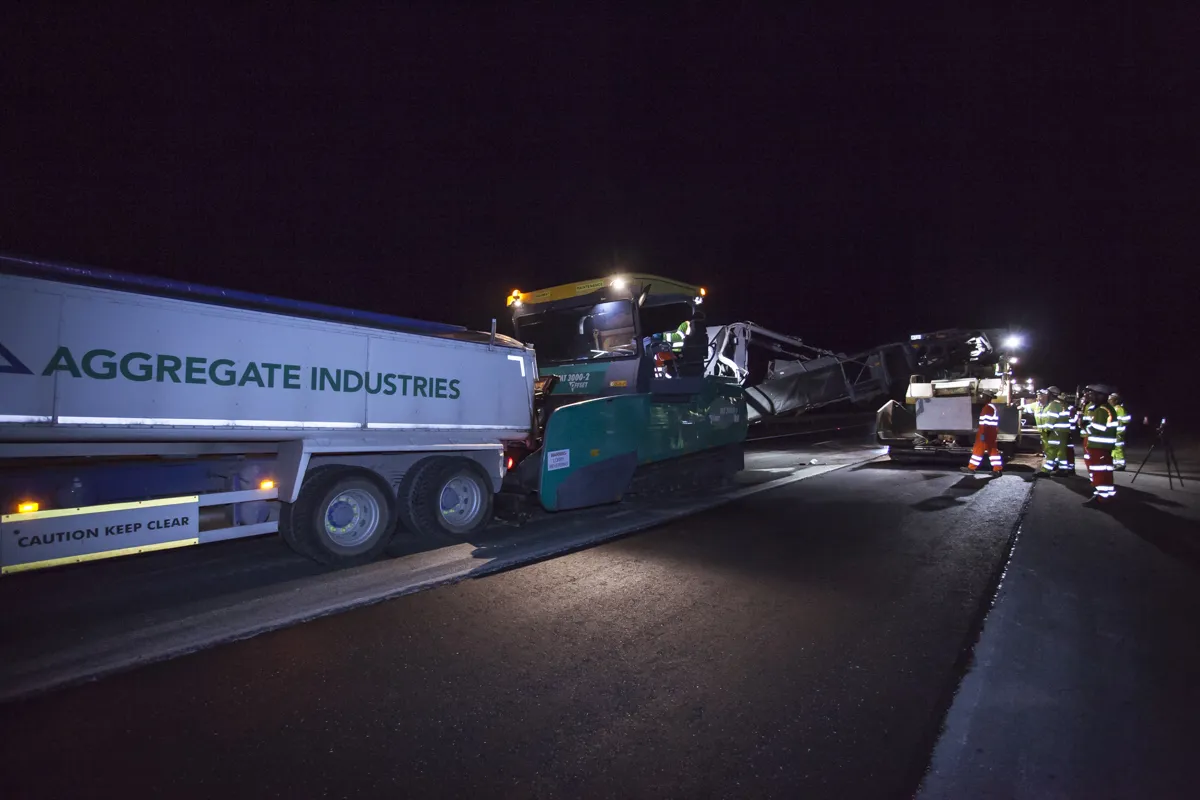
Working with a group of industry experts, National Highways – formerly Highways England - has been developing automated cone-laying vehicles to replace the manual method most commonly used now. Two automated vehicles have been developed as part of that vision.
The first, developed by Highway Care, has completed its on-road trials and is now in the marketplace for use by maintenance contractors working on England’s strategic road network – motorways and major A-class trunk highways.
The second vehicle, developed by King, is on extensive off-road testing at Manston Airport in the county of Kent, southern England. This vehicle differs from the Highway Care project – The Falcon - because it relies on a revolver-style design, meaning a huge rotating drum that deploys and collects the cones.
The manual method for deploying cones currently features two people on the rear of a vehicle working in tandem. Usually working at night and in all weathers, the workers lift up to six tonnes in cones alone per shift. The automated vehicles will improve safety and free up two workers for other tasks.
“The King vehicle is very innovative and off-road tests have been extremely promising so far,” said Martin Bolt, head of lean and continuous improvement at National Highways, formerly Highways England. Experts from Highways. Experts from highway maintenance firm Kier, traffic management consultants HW Martin and competitors Highway Care and King Highway are working together in a collaborative effort on the project.
The vehicle system was developed by King Group in conjunction with Verdegro, a UK maker of attenuators, site lighting and message signs, noted James Richmond, director at King Group. “The design enables it to be used as a multi-purpose vehicle, negating the requirement for an impact protection vehicle while setting out the signs and taper. The vehicle uses standard 1m cones which are laid and collected in a continuous cycle via the rotating barrel.”
The vehicle will move onto road trials later this year, said Richmond. Highways England has helped fund this project through the Innovation Designated Funds programme and established a minimum standard while the companies are developing the vehicles.
An average 1m-high cone weighs around 10kg. A typical 4km closure involves putting down – and later removing – between 260-300 cones, meaning that two workers will both handle between 5-6tonnes of cones per shift. When additional equipment such as frames, signs,lamps and sandbags are factored in, it is not unreasonable for them to lift between 8 and 10tonnes per shift. A single kilometre of coning can take 15 minutes to install and remove, resulting in an exposure time to live traffic of around two hours per shift.
National Highways is the wholly government-owned company responsible for modernising, maintaining and operating England’s motorways and major A roads.









